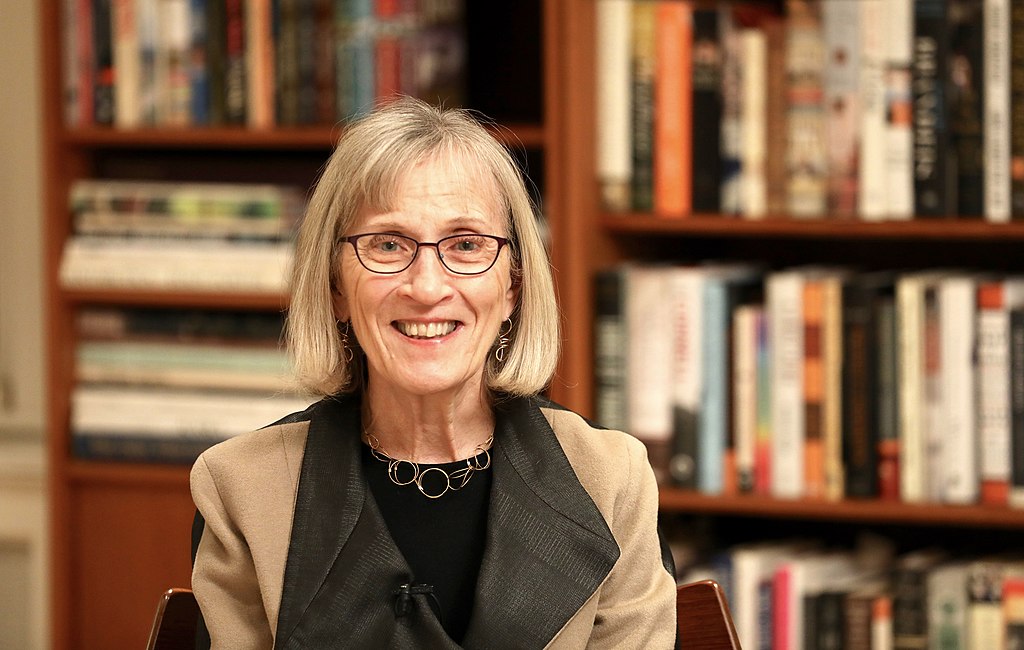Claudia Goldin awarded the 2023 Nobel Prize in Economics
This year’s Nobel Prize in Economics was awarded to Claudia Goldin, an economic historian based at Harvard University. As outlined in a statement published by the Royal Swedish Academy of Sciences on 9 October 2023, Goldin was selected “for having advanced our understanding of women’s labour market outcomes.” The prize money is 11 million Swedish kronor, which equalled around £ 821,000 at the time of writing, and Goldin is only the third woman to win the prestigious prize since it was instituted by the Central Bank of Sweden in 1969.
One of her most monumental projects, the results of which were published in 2006, consisted of a long-term analysis of married women’s labour force participation in the United States. Spanning a period of more than 200 years, from the late 18th to the early 21st century, the paper describes the general trend in women’s employment as a U-shaped curve: women’s formal employment decreased with the advent of industrialisation and the subsequent division between workplace and home, public and private sphere, productive remunerated and ‘unproductive’ care work. From 1910 onwards, women’s employment increased as American society underwent a structural transformation that saw the rise of the tertiary (service) sector.
A lack of continuous long-term data on women’s employment poses a major challenge to economic historians working on this topic, which Goldin overcame by filling data gaps through extensive archival research. Her efforts were acknowledged by the Nobel committee, with Randi Hjalmarsson, a member of the committee, comparing her to a “detective” who found “creative ways to […] measure these unknowns.”
Goldin coined the term ‘quiet revolution’ to describe a phenomenon whereby women massively entered the workforce in the 1970s. Crucially, she discovered that what ultimately pushed married women into employment was not so much structural transformation or a rise in educational opportunities and outcomes, but rather a change in attitudes and married women’s self-image partially enabled by delayed marriage as an effect of new contraceptive methods, allowing women to form an identity outside of the home before getting married. Whereas before, the male-breadwinner-model was firmly in place, women now began conceiving themselves and their role within the family and society at large in a different way.
However, in recent years, women’s labour market participation has stagnated in the US, which had the highest labour force participation rate (an indicator used to express the ratio of women who are in remunerated work to those who are not) in the world in the 1990s. When asked about this development, Goldin said: “We have to step back and ask questions about piecing together the family, the home, together with the marketplace and employment.”
In addition to female employment, Goldin’s work also offers explanations as to the origins of the gender pay gap, which according to a report by the World Economic Forum is currently at 31.6 % globally. Her research suggests that while historically, gendered divisions both in the type of work or sector and the positions within employment hierarchies have affected salary differences between men and women, today, pay gaps often occur in the same field, and are exacerbated by gender roles in the home, particularly when children enter the picture.
Reactions to Goldin’s win have been overwhelmingly positive. Jakob Svensson, Chair of the Committee for the Prize in Economic Sciences, said: “Understanding women’s role in the labour [force] is important for society. Thanks to Claudia Goldin’s groundbreaking research we now know much more about the underlying factors and which barriers may need to be addressed in the future.” Paul Krugman, an Economics Nobel Prize laureate himself, even suggested that “the Nobel announcement sold Goldin a bit short by failing to note her hugely important contributions beyond the issue of women’s work.”
However, there are limits to Goldin’s research, as it focuses primarily on educated women and their engagement with the labour market. It also puts a regional focus on the US, though some of the findings might be applicable to other countries with a similar trajectory.
The formal Nobel Prize awards ceremony will be held at Stockholm Konzerthuset on 10 December 2023, the 127th anniversary of Alfred Nobel’s death. The laureates receive their awards from the King of Sweden and are usually invited to hold a Nobel Lecture linked to the area of research for which they received the prize.

Comments